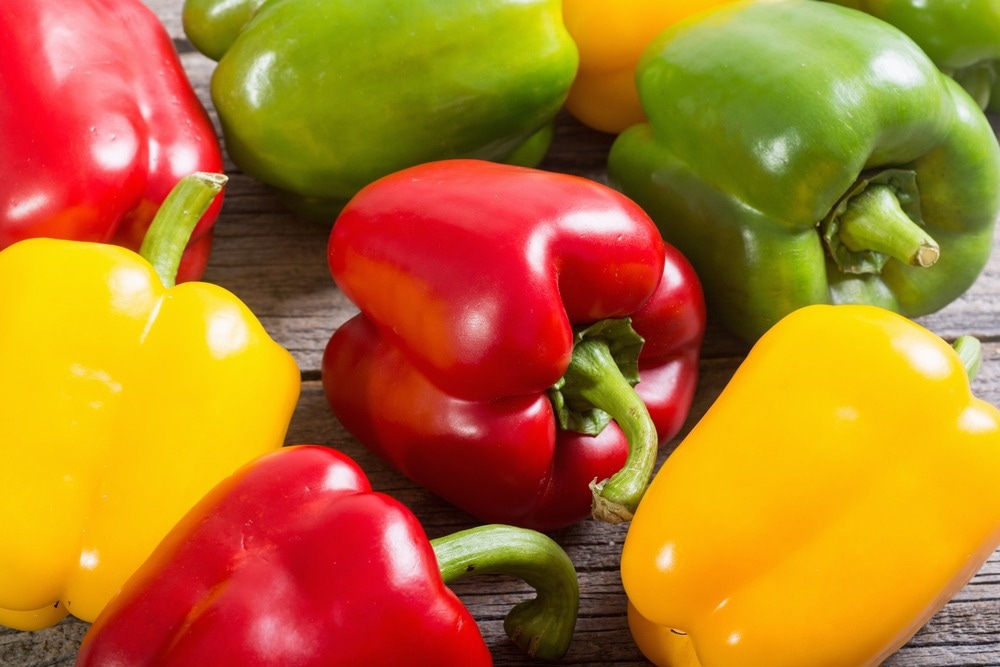Reviewed by Danielle Ellis, B.Sc.Sep 13 2023
Peppers are known for their versatility, rich flavor, and broad popularity, serving not only as a nutritious food source but also for their medicinal attributes. An interdisciplinary team of researchers, including experts from the Boyce Thompson Institute, has successfully decoded the genomes of pivotal cultivated and wild pepper species.

Image Credit: AlexeiLogvinovich/Shutterstock.com
This achievement provides unparalleled insights into the evolution, domestication, and genetic diversity of peppers. The study was published in the journal Nature Communications.
Our analyses have allowed us to identify genes associated with critical traits, including fruit shape, flavor, and stress responses. This opens up a world of possibilities for agricultural advancements and the development of more resilient, flavorful varieties.”
Zhangjun Fei, Professor, Study Co-Lead Author, Boyce Thompson Institute
The Capsicum genus, commonly referred to as pepper or paprika, is a part of the nightshade family and encompasses approximately 35 distinct species. Through their research, the scientists unearthed that the two primary domesticated species have undergone distinct selective breeding processes, leading to variations in characteristics such as fruit size, shape, and spiciness.
Furthermore, they observed instances where certain species have acquired genetic traits from one another, potentially enhancing their ability to withstand pests and environmental challenges.
Our findings suggest that the pepper's domestication is more complex than previously thought. The unique genomic regions we've identified could be significant in developing pepper varieties tailored for specific environmental conditions and those with enhanced fruit quality.”
Zhangjun Fei, Professor, Study Co-Lead Author, Boyce Thompson Institute
The researchers initiated their study by establishing top-tier genomes for three distinct pepper species, employing cutting-edge sequencing techniques. These genomes served as the foundation for constructing an all-encompassing graph pan-genome.
Subsequently, the team embarked on the resequencing of 500 pepper varieties, encompassing all five domesticated species as well as their wild counterparts. With this extensive dataset at their disposal, they meticulously crafted a comprehensive variation map, facilitating the in-depth analysis of genetic disparities among these species.
Our study provides valuable genomic resources that deepen our understanding of pepper genetics, facilitating future functional studies and greatly enhancing breeding efforts.”
Zhangjun Fei, Professor, Study Co-Lead Author, Boyce Thompson Institute
The resultant pepper genome sequence and variants database are readily accessible for searching, viewing, and analysis. This valuable resource is actively maintained by the Fei Lab.
Source:
Journal reference:
Liu, F., et al. (2023). Genomes of cultivated and wild Capsicum species provide insights into pepper domestication and population differentiation. Nature Communications. doi.org/10.1038/s41467-023-41251-4.